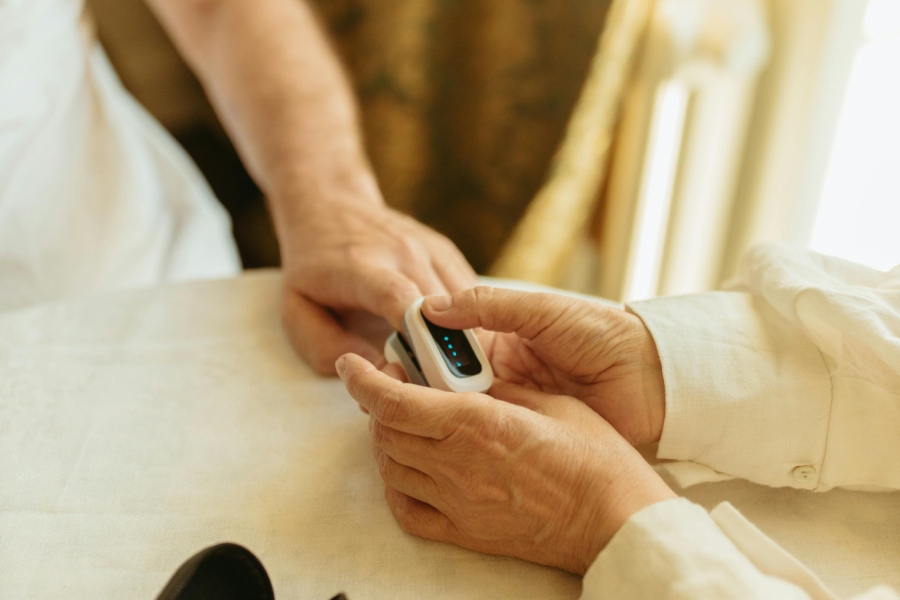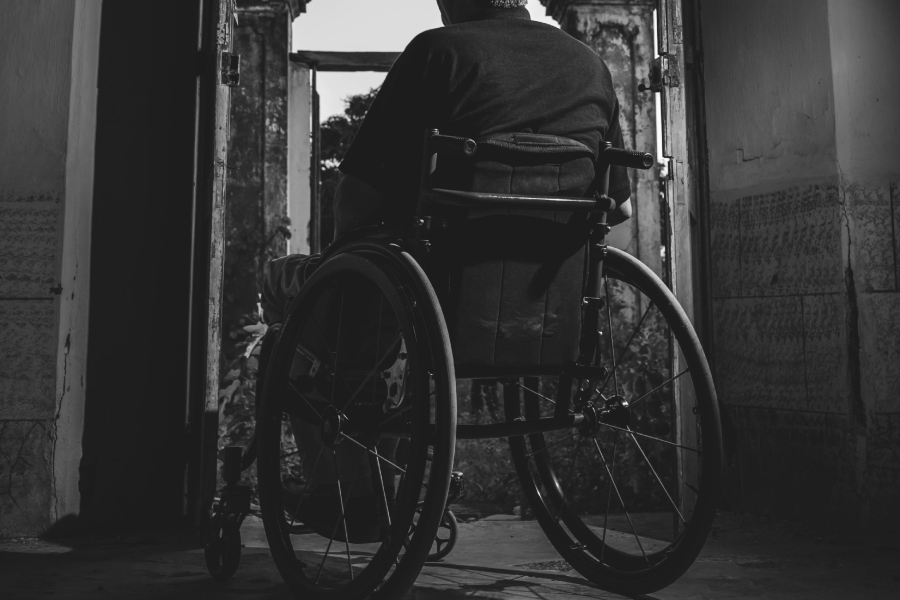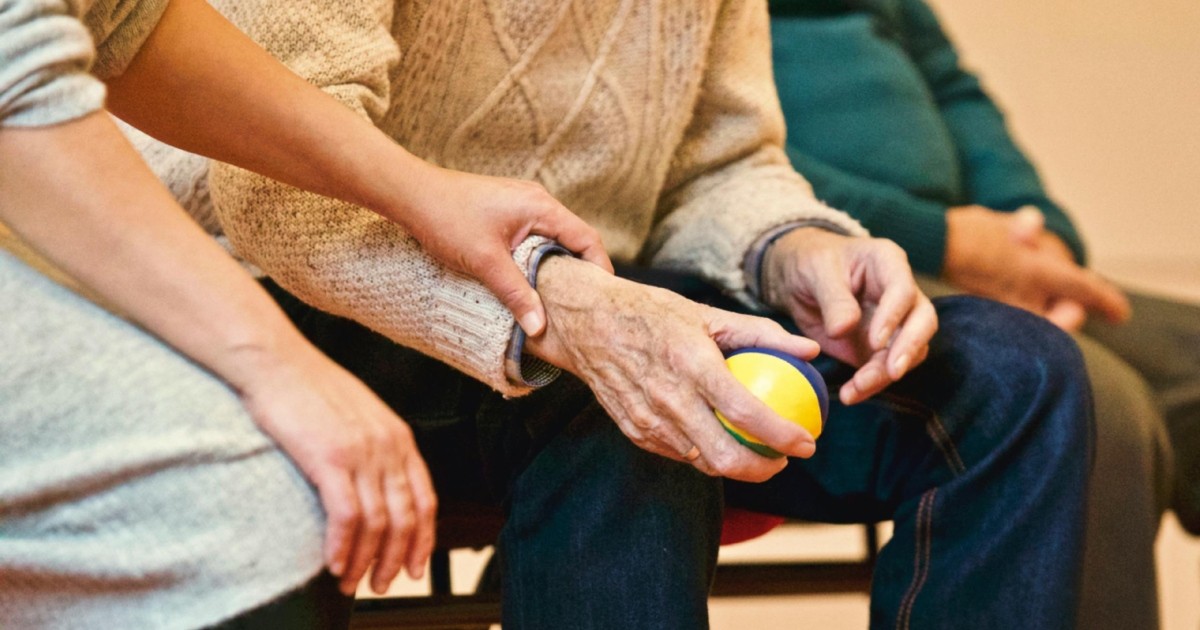To mark World Mental Health Day (Oct 10), AsiaOne looks at how everyday Singaporeans cope with mental health issues in their lives.
There have been more conversations about mental health awareness and advocacy in Singapore in recent years, but some groups of people here may still end up slipping quietly through the cracks — such as seniors and caregivers.
According to the Well-being of the Singapore Elderly study conducted by the Institute of Mental Health (IMH), the prevalence of depression among the elderly in Singapore is around 5.5 per cent, or one in 18.
Singapore Hospice Council’s website also stated that caregiver burnout is a “growing and significant concern” in Singapore, with a survey of 200 family caregivers revealing that more than 40 per cent are at risk of depression.
But even then, mental wellness in these groups often don’t get the same attention as everyone else.

According to experts, several factors can contribute to these groups being overlooked when it comes to mental health.
Why they fly under the radar
Speaking to AsiaOne, Dr Yao Fengyuan, senior consultant and chief of geriatric psychiatry with IMH, explained that elderly individuals in Singapore “face multiple barriers that might limit their access to mental healthcare services”.
Social stigma might prevent them from seeking help or acknowledging their psychological needs as it is “often perceived as a weakness”, and physical limitations, particularly frailty (being weak) and poor mobility can make it difficult for them to leave their homes easily.
Senior citizens may also experience more losses than other age groups — from declining health and income to the loss of spouses or close friends. These can create “complex emotional and psychological challenges” that require specialised attention, but at the same time make them more resistant to seeking help.
Money is also a factor. Many elderly patients may be reluctant to attend frequent follow-up appointments, avoid newer but more costly medications or avoid going to daycare facilities for activities and rehabilitation due to financial constraints.
“The complexity of problems facing elderly patients extends beyond mental health alone, encompassing frailty, physical health and complications, financial difficulties arising from retirement or reduced income, and social isolation,” said Dr Yao.
Dr Khang Hock Siang, senior family physician from SATA CommHealth, told AsiaOne that seniors “may not voice their struggles because they think it’s just a part of ageing”.
As for caregivers, Dr Khang said that it could be because they often prioritise others before themselves, which might lead them to “neglect their own needs”.

Stressing on the importance of having accessible clinics and structured programmes for screening and caregiver training to combat these factors, Dr Khang explained: “As their first touchpoint, this gives us the chance to spot when someone may need more support and to connect them with the right resources.”
What makes the elderly and caregivers more prone
Senior citizens tend to face many simultaneous changes, losses and transitions that increase their vulnerability to mental health conditions, Dr Lim Si Huan, principal clinical psychologist from IMH, told AsiaOne.
“Seniors experience significant physical decline, including chronic illnesses, pain and medication side effects that limit independence and daily functioning,” she stated, adding that age-related brain and hormonal changes may further impair their ability to adapt and regulate emotions effectively.
Some other contributors also include life events that reduce their social networks like bereavement of loved ones and friends that create profound loss.

Empty nest syndrome, which occurs when children leave home, can also trigger a sense of “purposelessness, sadness and loneliness”, while retirement “compounds isolation through both loss of workplace connections, sense of purpose and financial constraints that limit social activities”, Dr Lim said.
She explained that collectively, these factors can contribute to a loss of autonomy, roles and identity that may result in a feeling of unworthiness, and life being empty or meaningless — which can predispose the elderly to mood-related mental health conditions like depression and anxiety.
For caregivers, SATA CommHealth’s Dr Khang stated that they “often experience burnout”.
According to the Agency for Integrated Care, caregiver burnout is a real condition where the caregiver feels overwhelmed and exhausted from the stresses of caregiving.
This might lead to them feeling unsupported, unappreciated and neglecting themselves, which can in turn lead to depression and loss of interest in caring for themselves and their loved ones.
Referencing a survey by Singapore Management University (SMU), Dr Khang stated that three in four caregivers of persons with mental health conditions reported feeling tired from caregiving, and many felt unprepared for their role.
Why it’s important to seek help
Emotional wellbeing directly affects physical health, said Dr Khang.
“For example, stress and poor coping can worsen conditions like hypertension or diabetes, which we commonly manage in our clinics,” he said.
According to him, seeking help early even by starting with a routine consultation or screening allows doctors to provide reassurance, medical care, and when needed, referrals to community or specialist services.
Speaking from experience, Dr Khang shared that he had seen a patient who repeatedly presented with “vague complaints” like body aches and urinary issues despite being physically well and working.
After dedicating extra time to converse with him, it was revealed that he carried substantial burdens like “intense financial worries” and feelings of isolation as his family were all overseas, which led to depression.
Dr Yao also added that delaying seeking help and treatment may lead to serious consequences, such as increased suicide risk and medical complications that become more difficult when discovered late.
Speaking on the importance of seeking help for vulnerable groups like seniors, he said: “Timely mental health treatment enables elderly patients to experience substantially better quality of life, allowing them to maintain greater independence and well-being in their later years.”
Resources are available
For those in need of mental health help, there are resources and aid available — even for seniors who might not be as tech-savvy.
Dr Yao advised that elderly individuals can reach out to their family or friends to accompany them to a nearby Family Service Centre or polyclinic to seek help, or visit them on their own.
“Polyclinics now offer Health and Mind clinics that can assess and treat mild mental health conditions, making mental healthcare more accessible within the community,” said Dr Yao.
For those without family support or who are unsure how to access help, they can also call National Mindline at 1771 or visit their website to seek help, where trained operators will provide guidance.
According to Dr Khang, there are also resources specifically tailored for these vulnerable groups.
They can access health screenings, caregiver support training and advance care-planning services at SATA CommHealth clinics.
Tips and advice from experts
If you or someone you know is struggling, experts like Dr Khang advise that while it might not be easy to voice out, it’s still important to — and it may not be as daunting as you think.
“It is not always easy to talk about how you’re feeling, but the first step can be as simple as visiting your doctor. Sometimes people don’t know who to talk to, and that’s where we can help,” said Dr Khang.
“For caregivers, remember to also care for your own health, not just your loved ones’. Reaching out doesn’t have to be big, it can start with just one small conversation,” he assured.
Dr Yao also advises caregivers, family members and friends of the elderly to spend more quality time with them, like focusing their attention on engaging with them and addressing their concerns.
“When the elderly ask for help, they should try their best to be supportive and reassuring,” he encouraged.
He added that many elderly patients may feel that they are troubling their family members when they voice out, making them feel socially isolated even though they have family members who are willing to help.
Recognising that family members may be juggling other responsibilities like family and work, Dr Yao shared that they can encourage elderly loved ones to continue to do activities within his or her capability and engage in regular exercise.
“They can also sign them up or accompany them for activities organised by community groups,” he said.
SINGAPORE HELPLINESSamaritans of Singapore: 1800-221-4444Singapore Association for Mental Health: 1800-283-7019Care Corner Counselling Centre (Mandarin): 1800-353-5800Institute of Mental Health’s national mindline: 1771 (24 hours)/ 6669-1771 (via WhatsApp)Silver Ribbon: 6386-1928We Care Community Services: 3165-8017
[[nid:719967]]
carol.ong@asiaone.com

